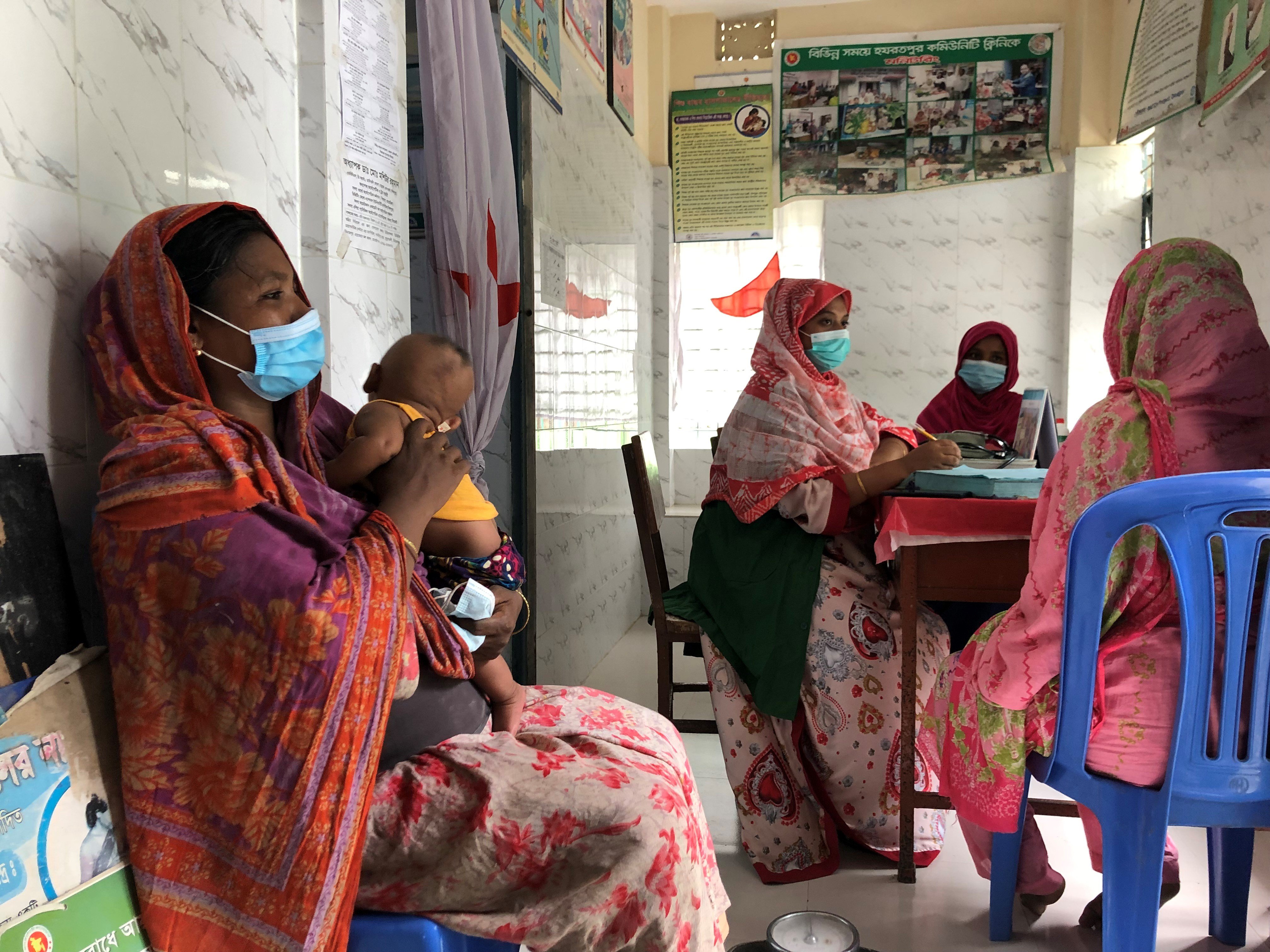Bangladesh: Community health workers at the heart of a stronger health system and the fight against COVID-19

Archana Rani was worried when her 3-year-old son, Subol, developed a high fever, but she knew exactly where to take him. The Borogoan Community Clinic in Bochagani Sub-District is just a 5-minute walk from where she lives, and she trusts the community health care provider to conduct a proper check-up and give the right advice. She also knew that if her son needed any medication, it would be provided free of charge.
“The community clinic is a blessing to us. We do not need to go to the town for essential medical care. It saves our time and money. We are economically poor as we have to work hard every day for our livelihood,” said Archana.
Local community clinics operate across Bangladesh, providing primary health care services to rural and often marginalized populations. Each clinic has a full-time community health care provider, who is assisted by 2 other community health workers who serve part-time in the clinic and part-time visiting households in the community catchment area.
These community health workers provide antenatal and postnatal care, conduct diabetes and blood pressure checks, look out for signs of fever, diarrhoea and cough. They also support family planning and safe delivery, provide advice on nutrition, adolescent health and hygiene, among other services. They are regarded as the backbone of the primary health care system of Bangladesh and they have been making a major contribution to the delivery of essential health services to rural populations throughout the COVID-19 pandemic.
Community health clinics
One of the most pioneering health efforts in Bangladesh was the introduction of a community-based health care programme in the 1970s. Since then, the programme has gone from strength to strength with a growing cadre of community health workers playing a critical role in improving the overall health and the socio-economic status of the Bangladeshi population. Community clinics have now become the prime strategy of the Government towards achieving universal health coverage (UHC) and have now become crucial in the fight against COVID-19.
Community health workers and COVID-19
When COVID-19 first emerged as a highly transmissible disease in March 2020, people became anxious and curious. Their lives, livelihoods and the existing healthcare system were all threatened. Fear, prejudice and lack of awareness meant that people were not visiting health facilities for essential services, and when COVID-19 vaccines were made available, people were not coming to the vaccination centres either.
Community health workers performed the essential function of working as ambassadors of the public health system. District health managers asked them to reach out to community members, raise awareness about public health and help revive trust in the health system. Community health workers also conducted contact tracing, facilitated home quarantine, isolation, referral and follow up in the rural and hard-to-reach areas.
Working in partnership
The Government of Bangladesh and WHO have established a solid and long-standing partnership. Over decades, WHO has strongly supported the Government’s high priority to provide effective community-based services. This includes providing technical support to build the capacity community health workers, establishing pilot project community clinics, organizing training for community health workers, and supporting the development of the national community health workers strategy. WHO, through the UHC Partnership, also provided catalytic support through an initiative called, “Better Health in Bangladesh: Health Systems Strengthening Technical Assistance 2018 – 2022”, which has contributed to strengthening the country’s community-based services programme further.
Source: www.who.int
